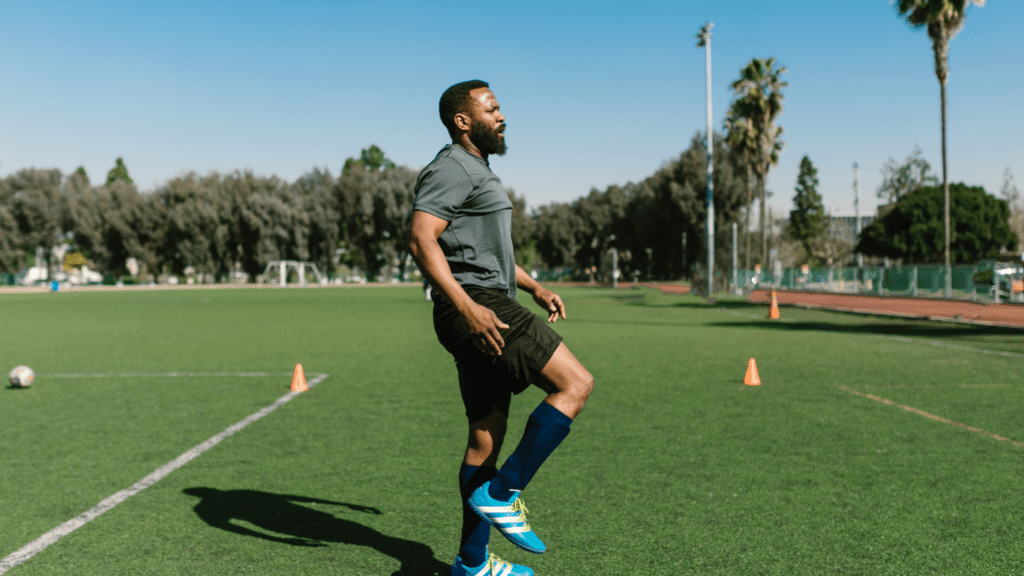Every athlete knows that the right mindset can make all the difference in performance. I’ve discovered that pre-game routines aren’t just about warming up; they’re essential for sharpening focus and enhancing overall performance.
Whether you’re a seasoned pro or a weekend warrior, establishing a solid pre-game routine can set the tone for success. In this article, I’ll explore various strategies that have helped me and countless others elevate our game.
From visualization techniques to physical warm-ups, these routines can help you harness your energy and channel it effectively. Let’s dive into the practices that can transform your game day experience and boost your performance when it matters most.
Importance Of Pre-Game Routines
Pre-game routines play a pivotal role in elevating athletic performance. They establish a focused mindset, help manage anxiety, and prepare the body for physical activity. Athletes employ specific rituals to trigger mental readiness and signal their bodies to switch into performance mode.
Mental Preparation
Mental preparation is vital in sports. Routines create familiarity and comfort, reducing nervousness before competition. Techniques like visualization enhance focus by allowing athletes to mentally rehearse successful performances.
This practice positively impacts confidence levels.
Physical Readiness
Physical readiness stems from structured warm-ups. Routines often include dynamic stretches, mobility exercises, and sport-specific drills. Engaging in these activities increases blood flow, elevates heart rates, and enhances muscle elasticity, preparing the body for peak performance.
Emotional Regulation
Emotional regulation becomes essential during high-stakes situations. Pre-game routines help athletes manage stress and channel nerves. Incorporating breathing exercises or mindfulness techniques within a routine allows for better emotional control, fostering a calm and focused mindset.
Consistency
Consistency in routines establishes a reliable framework for performance. Regularly following the same sequence of activities aids in forming habits. This repetition fosters a sense of belonging and stability, which contributes to higher levels of concentration during competition.
Boosted Performance
Studies show that well-defined pre-game routines directly correlate with improved performance metrics. Athletes often report increased focus, faster reaction times, and enhanced decision-making abilities when adhering to their established rituals.
Such benefits lead to more successful outcomes in competitive scenarios.
Incorporating effective pre-game routines can significantly influence an athlete’s performance on game day. By developing habits that encompass mental, physical, and emotional elements, athletes position themselves for success.
Types Of Pre-Game Routines
Pre-game routines fall into two primary categories: physical and mental. Each type plays a vital role in preparing athletes for peak performance.
Physical Routines
Physical routines primarily focus on preparing the body for optimal movement. These routines generally include:
- Warm-Up Exercises: Dynamic stretches and light cardiovascular exercises increase heart rate, enhance blood flow, and promote muscle elasticity. Examples include jogging, jumping jacks, or specific sport-related drills.
- Activation Drills: Specific movements engage key muscle groups relevant to the sport. For instance, squats or lunges target leg strength, while shoulder rotations enhance upper body readiness.
- Skill Practice: Repeating fundamental skills sharpens coordination and reinforces muscle memory. Drills might involve shooting hoops, passing drills in soccer, or practicing serves in tennis.
- Cool-Down Techniques: A brief cooldown period with static stretches helps prevent injuries and aids in recovery. These stretches promote flexibility and relaxation post-activity.
Mental Routines
Mental routines cultivate focus and concentration. Strategies typically involve:
- Visualization Techniques: Imagining successful performance scenarios reinforces confidence and enhances mental readiness. Athletes visualize themselves executing plays or achieving personal bests.
- Breathing Exercises: Controlled breathing helps reduce anxiety and promotes a calm mindset. Techniques, like deep diaphragmatic breaths, allow athletes to center themselves before competition.
- Positive Affirmations: Repeating affirmations fosters a positive mental state. Statements like “I’m prepared and capable” serve as motivational reminders.
- Routine Analysis: Reflecting on past performances and routines can aid in identifying effective practices. Athletes can adjust their routines based on what yielded the best results previously.
Benefits Of Pre-Game Routines
Pre-game routines offer critical advantages that can transform an athlete’s performance. Establishing a consistent routine not only boosts focus but also enhances overall athletic ability.
Enhanced Focus
Enhanced focus emerges as one of the primary benefits of pre-game routines. Engaging in structured mental and physical practices helps me concentrate on the upcoming performance. Routine activities, such as visualization and breathing exercises, prime my mind to block distractions.
A clear mental outline fosters better decision-making and quicker reactions during competition. Research shows that athletes with established routines often report higher levels of concentration, leading to improved in-game awareness.
Improved Performance
Improved performance directly correlates with well-executed pre-game routines. Preparing my body through warm-ups and activation drills optimizes muscle readiness, reducing the risk of injury.
Physical readiness translates into increased strength, speed, and agility on the field. Moreover, mental preparation, including positive affirmations and routine analysis, builds confidence, allowing me to perform at my best. Studies indicate that routines not only enhance individual skills but also contribute to team performance, maximizing overall success in competitions.
Tips For Designing Your Pre-Game Routine
- Identify Your Goals: Determine what you want to achieve with your routine. Goals might include improving focus, reducing anxiety, or enhancing physical readiness.
- Create Consistency: Follow the same sequence of activities before each game. Consistency supports habit formation, making it easier to enter a focused state of mind.
- Include Physical Warm-Ups: Incorporate dynamic stretches, activation drills, and skill practice. Physical warm-ups prepare your muscles and increase blood flow, which enhances performance.
- Integrate Mental Practices: Use visualization techniques and positive affirmations. Mental practices help reinforce confidence and maintain concentration during competition.
- Manage Time Effectively: Allocate a specific amount of time for each aspect of your routine. Managing your time ensures all elements receive adequate attention without feeling rushed.
- Stay Flexible: Be adaptable to changes in circumstances. Sometimes unexpected events may require adjustments to your routine, so staying flexible maintains effectiveness.
- Evaluate and Adjust: Regularly assess your routine’s impact on performance. Gathering feedback helps identify areas for improvement, allowing for necessary adjustments.
By implementing these tips, designing an effective pre-game routine becomes achievable, ultimately leading to enhanced focus and performance during competition.




